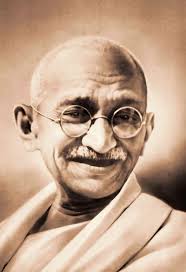
Mohandas Karamchand Gandhi, popularly known as Mahatma Gandhi, is honored as the “Father of the Nation” in India for his pivotal role in the country’s struggle for independence. He was born on 2 October 1869 in Porbandar, Gujarat and became a global symbol of non-violence, truth, and civil disobedience.
Why is Gandhi Called the Father of the Nation?
- Leadership in India’s Independence Movement – Gandhi led major movements like the Non-Cooperation Movement (1920), Civil Disobedience Movement (1930), and Quit India Movement (1942) against British rule.
- Principle of Ahimsa (Non-Violence) – He preached and practiced non-violent resistance, inspiring millions.
- Promotion of Self-Reliance – He encouraged the Swadeshi movement, self-sufficiency, and the use of Khadi.
- Social Reforms – Gandhi worked against untouchability and promoted communal harmony.
Legacy
Gandhi’s philosophy influenced global leaders like Martin Luther King Jr., Nelson Mandela, and the Dalai Lama. His birthday, October 2nd, is observed as Gandhi Jayanti in India and the International Day of Non-Violence worldwide.